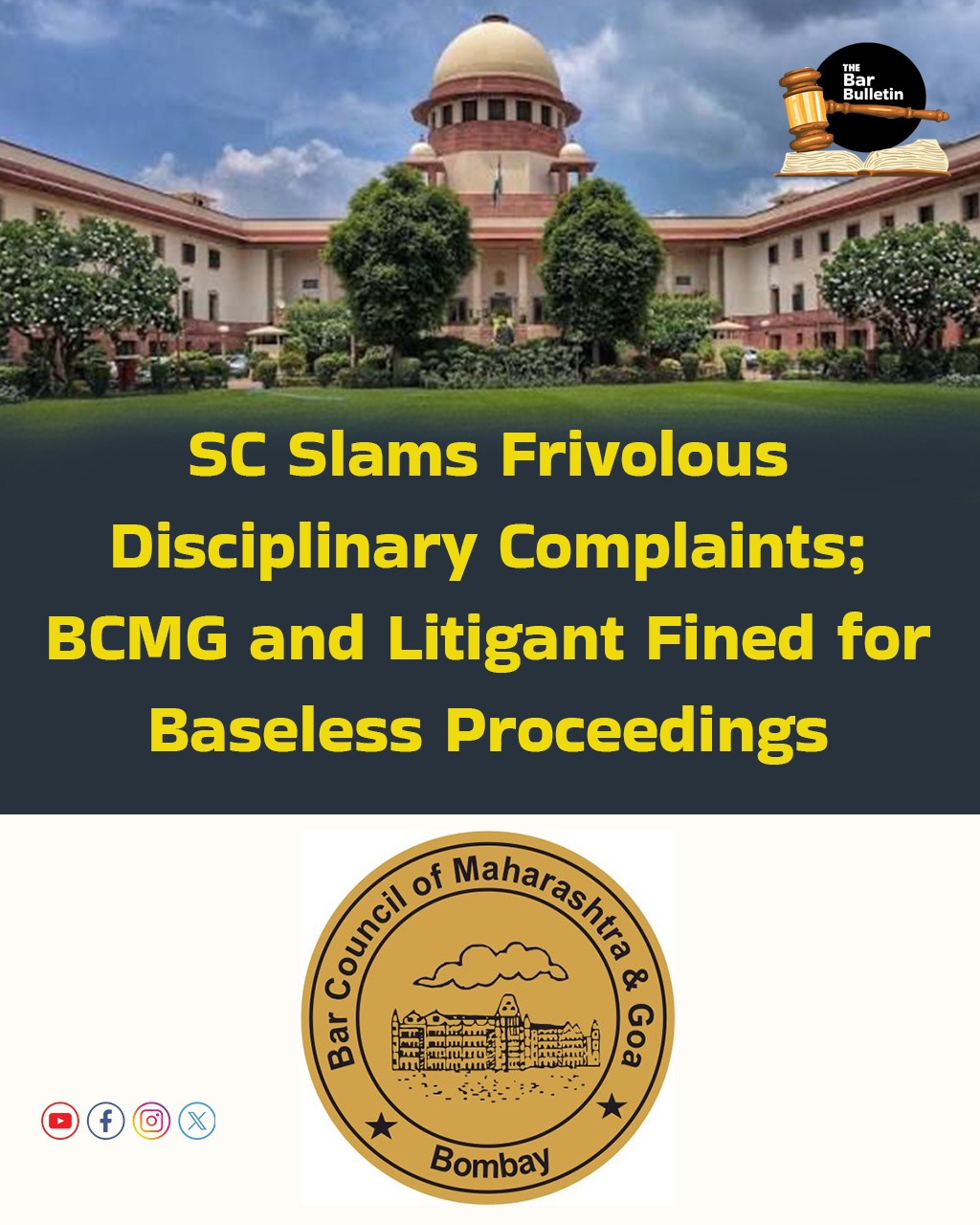The Supreme Court allowed appeals to quash the disciplinary proceedings against the respondent advocates, and imposed costs on the Bar Council of Maharashtra and Goa (BCMG) and the complainants for prosecuting baseless complaints.
The case arose when BCMG referred complaints by private parties against opposing counsels, alleging professional misconduct under Section 35 of the Advocates Act, 1961. BCMG challenged interim High Court orders, which had stayed these references pending detailed inquiry by the Bar Council’s Disciplinary Committee. The main claim was that the complaints were filed by litigants against advocates who merely acted for the other side, with no client relationship or professional misconduct actually shown.
In the principal matter, the complaint alleged that an advocate colluded in fraud by identifying a party during the execution of consent terms in a long-standing property litigation between third parties. The complainant was neither a client nor directly represented by the respondent advocate.
In a connected matter, another complaint targeted a lawyer for attesting an affidavit for the opposite party in a separate litigation, with the complainant asserting that this made the advocate complicit in the contents of the affidavit.
BCMG argued that the High Court erred by intervening mid-inquiry and that mere prima facie satisfaction is enough for a referral under Section 35. The respondent advocates argued that complaints by non-clients or for acts not amounting to misconduct are an abuse of disciplinary machinery. They also highlighted the lack of any adverse finding regarding the validity of the court orders/consent terms.
The Bench comprising Justice Vikram Nath and Justice Sandeep Mehta held that for disciplinary jurisdiction to be invoked, a professional relationship or clear misconduct is needed, and targeting an opposing counsel is improper and baseless. The Court found that BCMG had not properly recorded requisite reasons before referring the complaints, ignoring binding precedent set in Nandlal Khodidas Barot vs Bar Council of Gujarat[1].
The Court emphasized that perfunctory or cryptic reference orders devastate reputations and are antithetical to the dignity of the legal profession. It was held that mere identification of a party by an opposite advocate, or attestation of an opponent’s affidavit, cannot constitute misconduct.
In result, the Supreme Court quashed the disciplinary complaints and all related proceedings, holding that no jural or professional relationship existed to warrant prosecution for “misconduct.” It criticized the BCMG for mechanical referrals, imposed a cost of ₹50,000 each on the Bar Council and vexatious complainants, to be paid to the respondent advocates. The pending writ petitions and all applications were disposed of.
[1] 1980 Supp SCC 318



